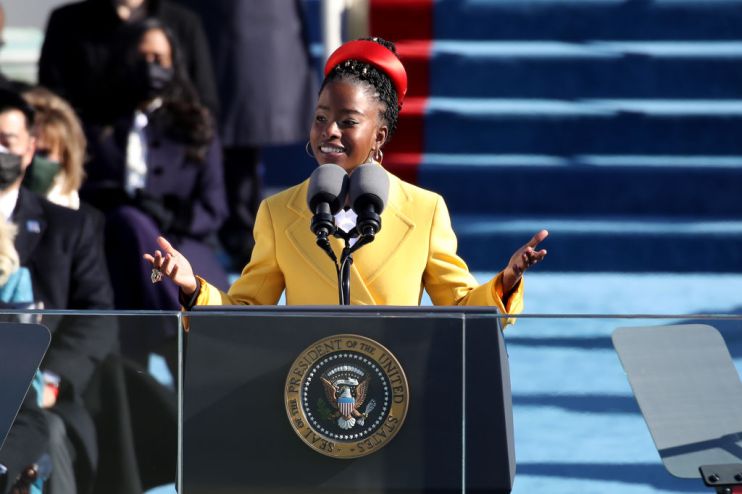Amanda Gorman and the influencer economy: how social media stars are shunning greenwashing

Amanda Gorman, the National Poet Laureate in the US, shot to stardom almost overnight after her reading at Joe Biden’s inauguration. Her picture, taken by Annie Leibovitz, was plastered on the May edition of Vogue.
The 23-year-old poet told Vogue she was working on projects that “speak to her” and had turned down various collaborations and deals worth approximately $17m.
Vogue describes her as a poet, an activist, optimist and style icon – “Gorman has become so much more than a literary star”. Gorman has created her own personal brand, with far more impact than your average Instagram influencer.
Gorman’s refusal to allow brands to capitalise on her reputation to enhance theirs if their values do not align with hers signifies an important shift in the economy of influencers. She is in a unique position, but her sentiment has been echoed across social media platforms: the game is up on endorsements for the sake of endorsements.
It has become an established marketing technique to engage celebrities, influencers and the like to publicly support products and brands. During the various lockdowns, our lives turned inwards, but our actions were serving a larger public good, sacrificing our freedoms to keep the most vulnerable healthy. As more people became aware and engaged in acting for environmental and social change, influencers who continue to push harmful products or brands have faced a fracturing credibility.
We may even see these discerning standards elevate the value of a celebrity endorsement. Thoughtless influencing is being ushered out; consumers want consistency and credibility. In turning down $17m of endorsements, has Gorman made her rate higher still?
One clear example of this shift is the fashion industry, as influencers eschew “fast fashion”. The rise in popularity of fair fashion campaigner accounts such as that of Venetia La Manna, who seeks to inform her followers on issues such as greenwashing, perhaps sets the tone for where the influencing industry will turn to next. This week, Game of Thrones actress Maisie Williams faced a tirade of backlash after being the face for H&M’s “sustainable” line of clothing.
Brands, in order to maintain influence and outreach, will likely seek to move their focus towards engaging this new wave of credible influencers. With this shift, however, companies and brands will be held to a higher standard.
It goes without saying that if a company’s reputation is not up to scratch and they have a poor track record when it comes to responsible environmental and social behaviour, it is likely that they will not be able to engage such influence. This is another way that the consumer is seeking to hold companies to account for their actions.
As we move into a world where environmental and social goods are valued more highly there will be many more people in the public eye scrutinising the companies who want to work with them – often spotting companies who may seek to “greenwash” their brands via a collaboration.
As customers raise their standards and expectations, marketing campaigns for certain companies will become harder to organise if their reputation doesn’t fit the bill. Indeed, organisations may no longer be able to market their way out of bad decisions by aligning with socially conscious individuals and brands. The power shift is upon us, and those who still consider reputation management solely a marketing expense will find this out the hard way.